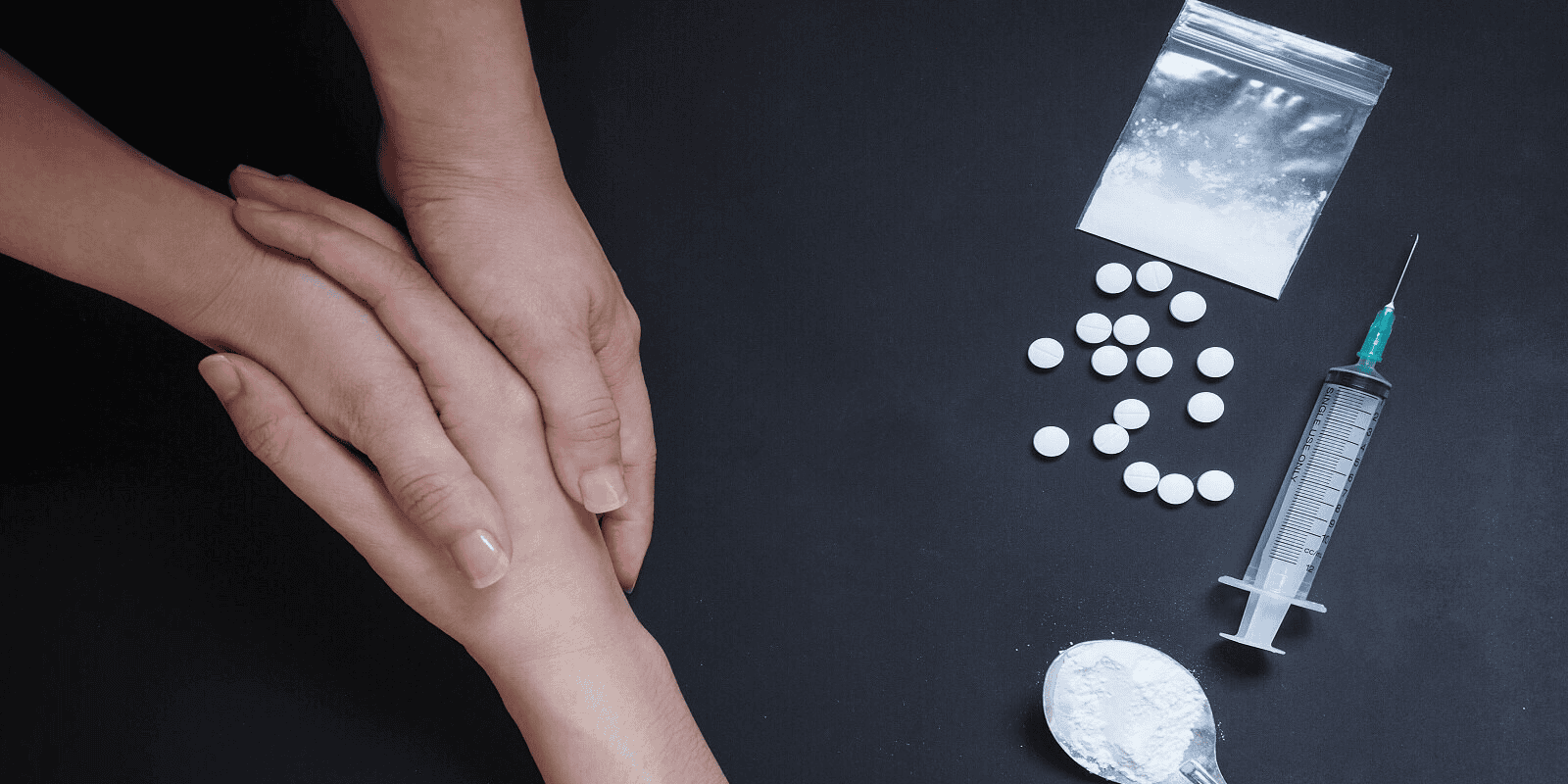Not known Details About Drug-free Life
Not known Details About Drug-free Life
Blog Article
The Of Drug-free Life
Table of ContentsRumored Buzz on Drug-free LifeExcitement About Drug-free LifeWhat Does Drug-free Life Mean?An Unbiased View of Drug-free LifeThe Single Strategy To Use For Drug-free LifeOur Drug-free Life IdeasSome Of Drug-free LifeThe Definitive Guide to Drug-free LifeDrug-free Life - An Overview

Throughout family counseling, your family participants will also discover concerning the dynamics of dependency and just how to ideal assistance you when you leave the rehab facility. Lots of programs include household participants and good friends throughout the whole rehabilitation process, from the preliminary analysis via aftercare.
Much of the very same strategies made use of in individual treatment are utilized in team therapy, such as psychoeducation, motivational interviewing, and ability development. Team therapy is linked with positive outcomes for dependency healing as a result of the social assistance it uses. Participants gain from sharing their experiences, hearing other people's tales, creating bonds, and supporting each other.
The 15-Second Trick For Drug-free Life
Alcohol, cigarette, and immoral medicines can significantly influence your health causing organ failure, cancer, and a host of various other medical problems. Dependency to those materials is a persistent brain disease. Material usage problems are the medical term for dependency to alcohol or medications, which creates considerable problems. Greater than 20 million Americans have compound usage disorder, according to the National Institute of Mental Health.
Our specialists provide a combination of specific, team, and medical treatment tailored to special needs. We additionally supply social supports to compensate participants for non-use and to involve member of the family in the therapy procedure. For additional information about the Smithers Facility, please call 212-326-8441. The Substance Therapy and Research Study Service of Columbia University (CELEBRITIES) at NewYork-Presbyterian/Columbia supply free and private therapy of substance usage via a scientific test.
3 Simple Techniques For Drug-free Life
For additional information about STARS, please phone call 212-923-3031. NewYork-Presbyterian/Weill Cornell's Midtown Center for Treatment and Research is a comprehensive not-for-profit outpatient program for the examination and treatment of chemically dependent individuals and their loved ones. To learn more regarding the Midtown Facility, please telephone call 212-764-5178. NewYork-Presbyterian Westchester Behavioral University hospital supplies extensive inpatient rehab therapy for alcohol and compound usage, with or without extra psychiatric problems.
At NewYork-Presbyterian, we have experience in treating a diverse patient populace. Other existing clinical conditions and psychological conditions can make treating a material usage problem in a senior client a lot more challenging. At NewYork-Presbyterian, our senior citizen psychiatrists and various other mental wellness care professionals with experience caring for older patients use experience and empathy.
Individuals who come to The Sanctuary for substance usage treatment advantage from a thorough examination, professional evaluation, and discreet, thoughtful care provided by country wide recognized psychological experts. Our inpatient and outpatient programs are run by highly experienced psychoanalysts and psychologists with sub-specialty training in areas ranging from dependency to rest disorders.
Little Known Questions About Drug-free Life.
Material usage disorder therapy programs typically fall under 1 of 2 classifications: inpatient or outpatient. While just as concentrated on recovery, each kind has unique features and benefits to offer. Inpatient therapy programs, also known as residential therapy programs, are intensive and are designed to deal with severe material use disorders and addictions.
It's important that both the private with a substance use condition (SUD) and their enjoyed ones comprehend the distinctions between these two kinds of treatment programs before choosing. Checking out all options prior to choosing can assist place the private or a liked one on the road to lasting soberness.
Dr. Ashish Bhatt, MD explains. During this time, people stay in a domestic therapy center where they get 24-hour clinical and emotional assistance.
Drug-free Life for Dummies
The core idea of 24-hour care and assistance coincides regardless of the type of facility. Discover These Featured Therapy Centers It is very important to correctly prepare for therapy. There's no collection quantity of time needed to prepare for therapy, however the faster the better in most situations. It's additionally essential to set an entrance day for admission and to have events settled before that day (Drug-Free Life).
Family members can speak to websites liked ones in residential treatment to give emotional assistance and inspiration. When it comes to how and how typically locals can interact with their liked ones, each inpatient programs' policy is different. Some use restricted or no visitation throughout Recommended Reading treatment, while others may allow for endless visitation and also entail friends and family in the recuperation procedure.
Ask for a call to locate treatment Enter your phone number below to obtain a cost-free and private call from a treatment service provider. You will receive a call from this paid advertiser Throughout inpatient treatment, citizens can completely concentrate on healing and sober without the diversions of day-to-day life. A regular day in residential therapy is very carefully arranged and made up.
The Ultimate Guide To Drug-free Life
A regular inpatient program runs anywhere from 30 days to 6 months. The primary step in inpatient therapy, for many, is clinically helped detox. Throughout detox, physicians and dependency experts check patients' essential indicators while the materials exit the system. Medicine cravings are typical throughout detoxification and can be tough to get rid of, typically leading to relapse.
Clinicians can provide required medication and clinical knowledge to reduce desires and withdrawals. In some instances, withdrawals can be fatal.
During inpatient treatment, patients have access to 24-hour clinical attention. Outpatient therapy is normally considered to be less restrictive than inpatient programs.
Not known Facts About Drug-free Life
The majority of residential programs have a PHP that people generally change to if they live in your area. PHP programs are usually 5-6 hours of treatment per day, generally for 5-6 days a week. This degree of treatment is frequently done while not working, as the treatment itself can be as time consuming as property therapy.
This enables even more adaptability for job and life requirements, in addition to a possibility to adjust into the globe with news assistance. These sessions concentrate on regression prevention, psychoeducation, individual, and team counseling; mentor recovery abilities to help reduce relapse and promote long-term healing. Outpatient therapy can be a helpful option for somebody with a mild substance usage condition, or it can be component of a long-lasting therapy program.
Examine This Report on Drug-free Life

Outpatient treatment allows those in healing to remain in the house throughout therapy or at a sober living home that may be gotten in touch with the therapy program. Those going through outpatient treatment can proceed functioning and continue to be near friends and family. Outpatient therapy facilities generally conduct IOP at night or in the early morning to aid those in the program maintain their normal routines beyond treatment.
The Definitive Guide to Drug-free Life
The price distinction ought to not urge or dissuade a person from choosing the best treatment course for them. Paid Marketing. We obtain marketing charges from purchases through BetterHelp links. Despite which treatment choice you pick on your own or a liked one, treatment can transform your life. Addiction is a persistent health problem, and recovery is a long-lasting procedure.
Report this page